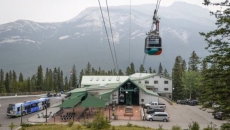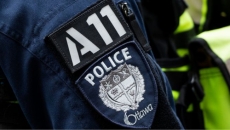On June 18, Hardeep Singh Nijjar phoned his eldest son for the last time, to say he was on his way home for dinner.
Baljar Singh Nijjar, 21, said his father had been in a good mood earlier that Father's Day, joking about the jeans Baljar and his younger brother had bought him as a gift.
"I'm on a diet, why did you give me this size, I'm not going to fit," Baljar recalled his father saying.
But a few minutes after the 8:20 p.m. call, Hardeep Singh Nijjar, 45, was dead, shot in his pickup truck by two masked gunmen in the parking lot of the Guru Nanak Sikh Gurdwara, in Surrey, B.C.
Nijjar is now at the heart of a diplomatic crisis between India and Canada, after Prime Minister Justin Trudeau announced on Monday that intelligence services were investigating "credible" information about "a potential link" between India's government and the killing.
He's being remembered by family and supporters as a giving community activist. But in India, Nijjar was a wanted man, after authorities labelled him a terrorist in 2020.
Balraj Singh Nijjar said his father was “generous, outgoing and a jolly person.”
“I know, people have been saying that India labelled my father as a terrorist. But (the Indian government) tried to extradite my father, but the Canadian government had denied that request,” he said, calling the accusations “false news.”
He said his father had moved from India to Canada in 1997 and had worked as a plumber in B.C. for more than 20 years.
Hardeep Singh Nijjar was also president of the Surrey gurdwara where he died, and a vocal supporter of the Khalistan movement that advocates for a separate Sikh homeland in India's Punjab province.
At the time of his death, he was organizing an unofficial referendum about Khalistan among the Sikh diaspora in B.C. with the organization Sikhs For Justice.
In 2016, Indian media reported that he was suspected of masterminding a bombing in the Sikh-majority state of Punjab and training terrorists in B.C. Last year, Indian authorities accused Nijjar of involvement in an alleged attack on a Hindu priest in India and announced a reward of about $16,000 for information leading to his arrest.
He denied the terrorism allegations and told the Vancouver Sun that he was too busy to participate in Sikh diaspora politics, calling the claims "garbage."
Balraj Singh Nijjar emphasized that his father was a Canadian citizen. Immigration Minister Marc Miller, aiming to “dispel the baseless rumours” about Nijjar’s citizenship, said on social media that Nijjar had indeed become Canadian in 2007.
Balraj said everyone at the temple remembered his father's "iconic laugh."
"Dad's personality was just so outgoing … it made us feel like there is someone here that you can talk to if you have any problems," he said.
He said the loss of his father hit his family "really hard."
On June 24, about 200 protesters gathered in front of the Indian Consulate in Vancouver to demonstrate against Nijjar's killing. They described him as “peaceful” and “humble” and dismissed allegations that he was connected to violence.
Many of the protesters were already convinced that Nijjar’s killing was linked to his calls for an independent Sikh state.
“He was a loving man, a hard-working man, a family man,” said Gurkeerat Singh, one of the protesters.






